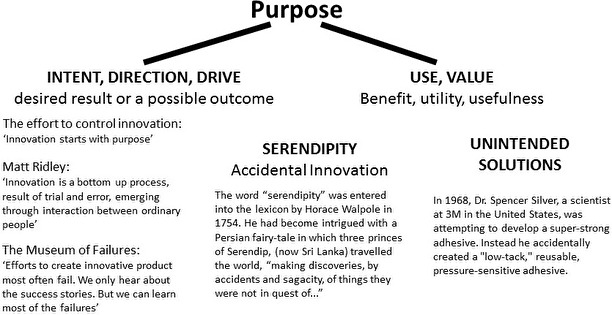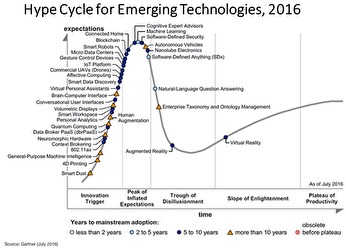SUCCESS OR FAILURE
Innovation starts with Purpose
In his best-selling book Start with Why, Simon Sinek suggests that purpose is a statement of why people should care about what an organization does. He suggests that people don’t buy what an organization does, but rather why a company does it.
So far, we cannot but agree!
But purpose can mean two things:
- The intent, with which the quest for an innovation gets it's sense of direction;
- The added value that an innovative product/service has for people who use it.
Success or Failure
On the next page, Matt Ridley points out that innovation seldom is the product of human design, it happens bottom-up, by trial and error.
So much as 80-90% of the efforts to create innovative products/services fail.
We tend, though, only to hear about the successes, seldom about the failures.
Although we might learn a lot from failures, organisations seem to sweep them under the carpet. The newly founded Museum of Failures exhibits a large number of 'flopped' innovations.
The best of innovations, and especially disruptive innovations 1] just seem to 'pop up' spontaneously, either accidentally, or simultaneously on many places on the same time when 'the time is ripe. E.g. the light bulb was invented by 23 different inventors.
1] Disruptive innovation is a term in the field of business administration. It refers to an innovation that creates a new market and value network and eventually disrupts an existing market and value network, displacing established market leading firms, products and alliances.
Predictable Patterns of Innovations
Christian Kromme tells us that the waves of inventions follow a certain pattern.
And Malcolm Gladwell points out that there is a tipping point 2] where something turns into a success.
2] The Tipping Point: How Little Things Can Make a Big Difference is the debut book by Malcolm Gladwell, first published by Little Brown in 2000. Gladwell defines a tipping point as "the moment of critical mass, the threshold, the boiling point". The book seeks to explain and describe the "mysterious" sociological changes that mark everyday life.
As Gladwell states: "Ideas and products and messages and behaviours spread like viruses do".







